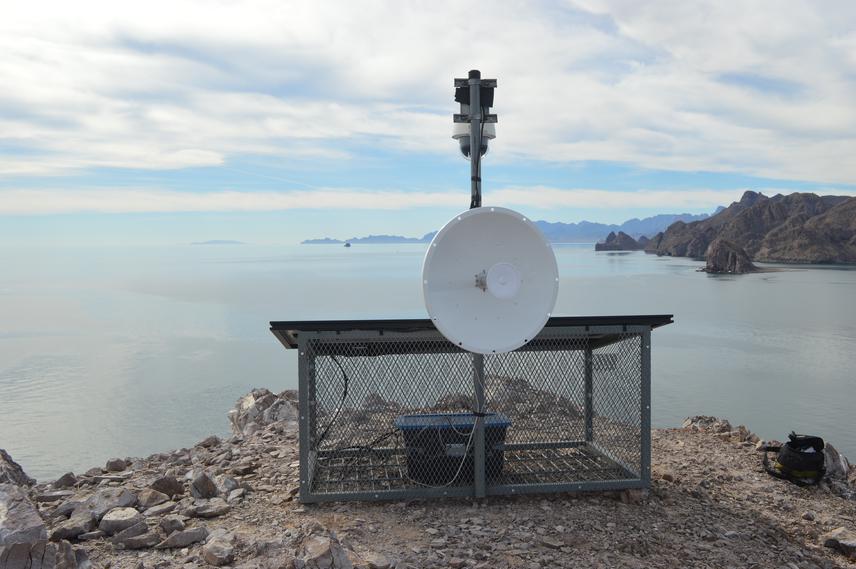Diane Gendron
Other projects
1 Feb 2013
Monitoring Blue Whale Behavior in the Gulf of California: A Key Component to Encourage Responsible Whale Watching
18 Sep 2018
Remote Monitoring of Whale Watching Activity and Blue Whale Diving Behaviour with an IP Camera-Based System in The Loreto Bay National Park, Mexico
25 Jun 2020
Accessible Remote Monitoring of Blue Whales and the New Passive Whale Watching Activity in the Loreto Bay National Park, Mexico
The proposed project aims to test a land-based camera system to monitor the newly implemented passive whale watching (WW) approach used by captains operating in the Loreto Bay National Park (LBNP). The camera system has a visual range of clear video recording up to 1.5 km, is movable and will be located in two possible sites where whales are often seen close to shore (Fig.1). The new monitoring will augment the ongoing collaboration between researchers, WW service providers, and the Park authorities in order to establish an enduring conservation of the NPLB habitat for the species.

IP Camera with all components positions at the Tijera Island site.
This pilot project consists in implementing a land-based camera system to monitor the WW activities and the natural behavior of blue whales. We will test the equipment and program the recording system to be based in two alternating sites that have already proven to be ideal for blue whale observation. During this time, we will continue our focal surveys of individuals at sea. We also propose a meeting in Loreto with the whale watching (WW) captains and the park authorities to present preliminary results and discuss the new monitoring system.
Testing and programing the IP camera: We will first test the equipment from the roof of the CICIMAR Research center, adequately situated in front of the Ensenada of La Paz where it will be easy to test the recording distance of similar boats to the WW boats from Loreto and program the recording system. During this period, we will design the system to fix the camera and solar panel to rocky ground. The camera and its power solar system will be anchored safely in a remote site. Reviewing the recording will be done every day to insure proper functioning with check rate determined by environmental conditions and internal memory capacity and to adjust recording options.
Data analysis: Recordings will be reviewed continuously, and analyzed to get an assessment of the method for general WW activity monitoring and studying whale behavior. We will conclude, collate and propose the next steps for the camera system to be more efficient in the final report to Rufford Foundation.